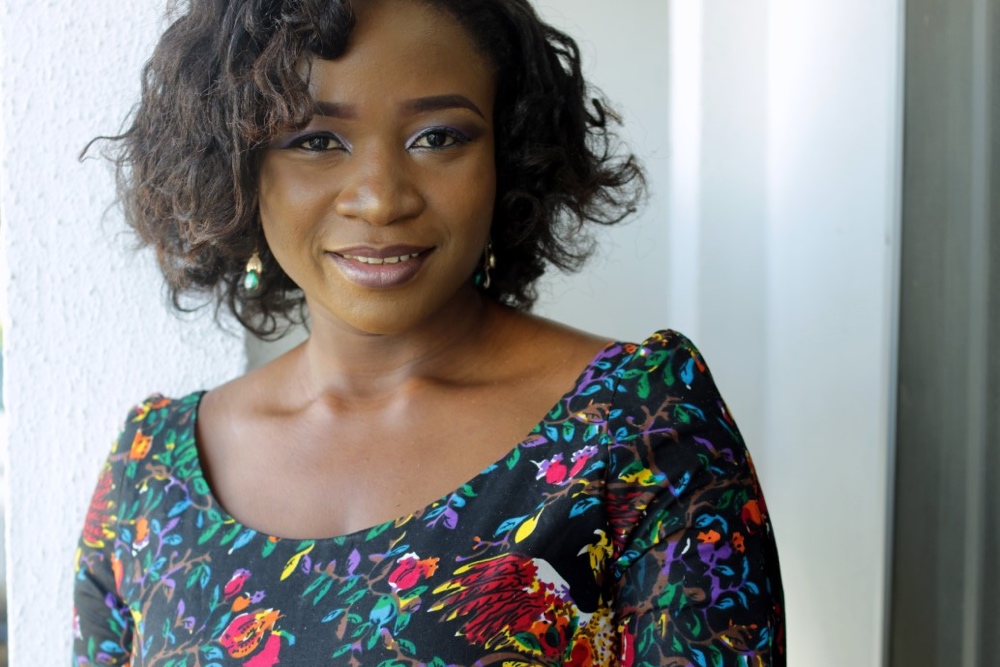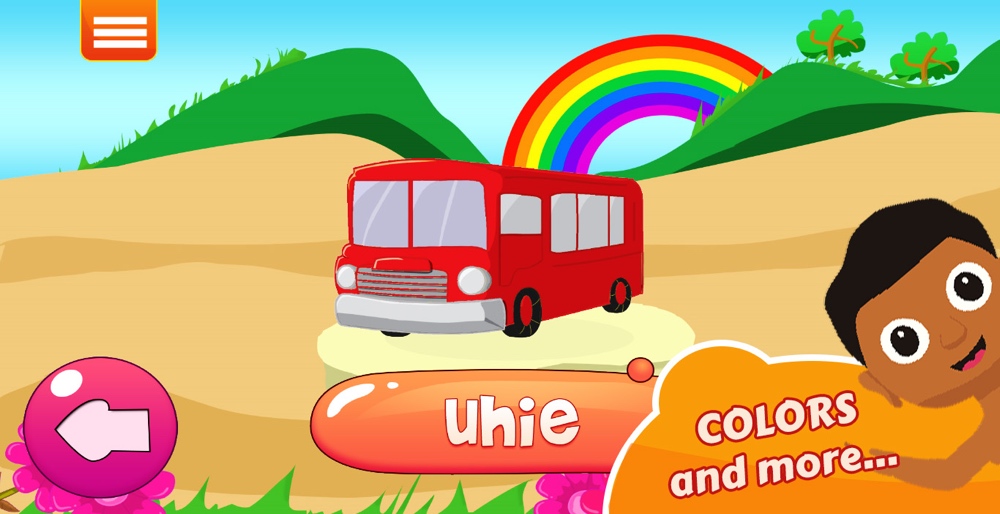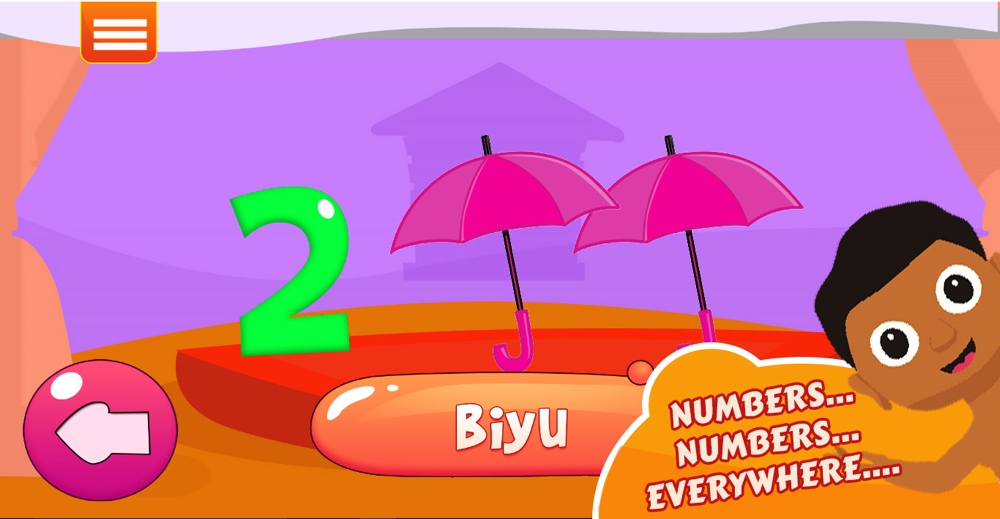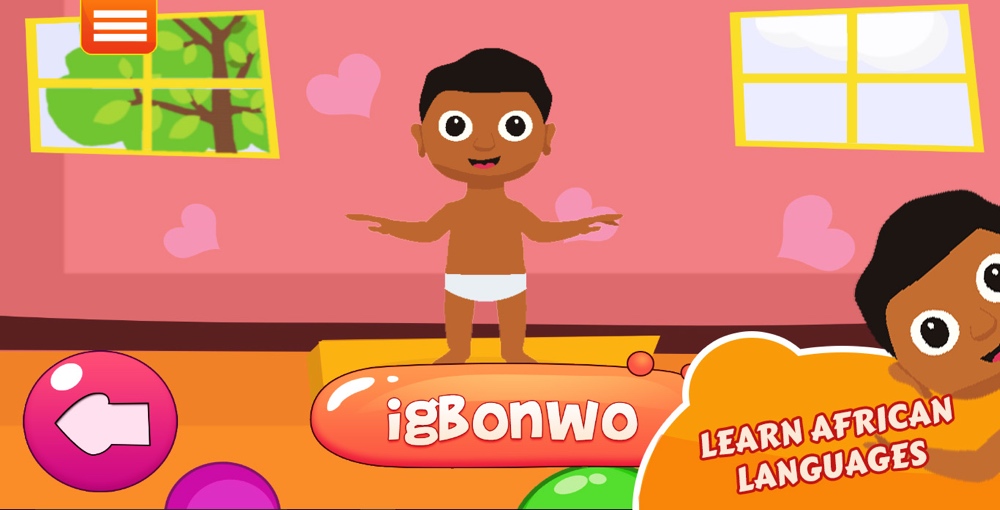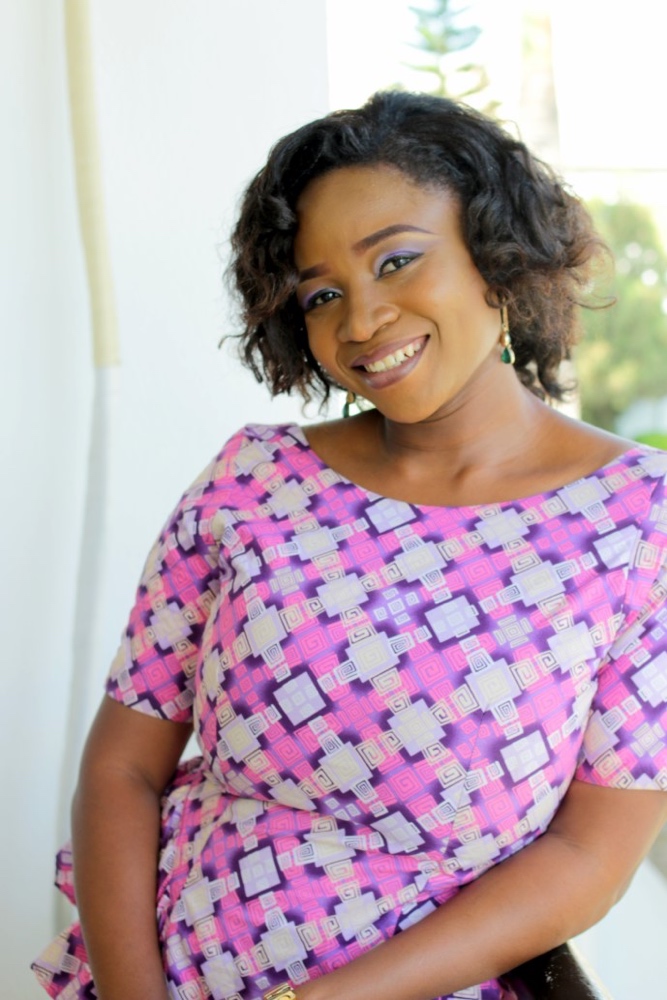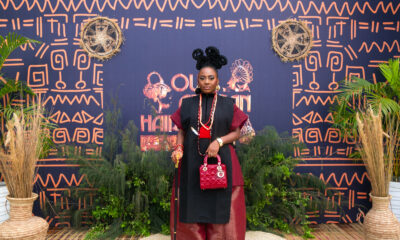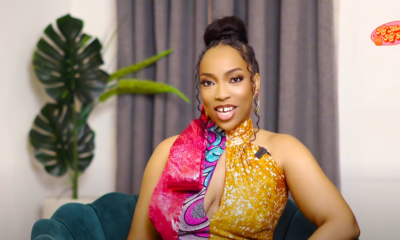Sweet Spot
Wa Zo Bia! Elizabeth Eremie is Preserving our Nigerian Heritage with a Language Teaching App for Kids called Teseem – First Words
Teseem – First Words is an educational app for babies, preschoolers and toddlers (aged 1 to 5). It’s perfect for teaching your kids and it’s intuitive so it gives them a chance to play and learn on their own, giving them a feeling of independence too.
The app is full of exciting educative animation that kids can activate just by touching the screen of any device. In addition to learning their first words in English, Kids can learn African languages and culture right from the start, from their very first words.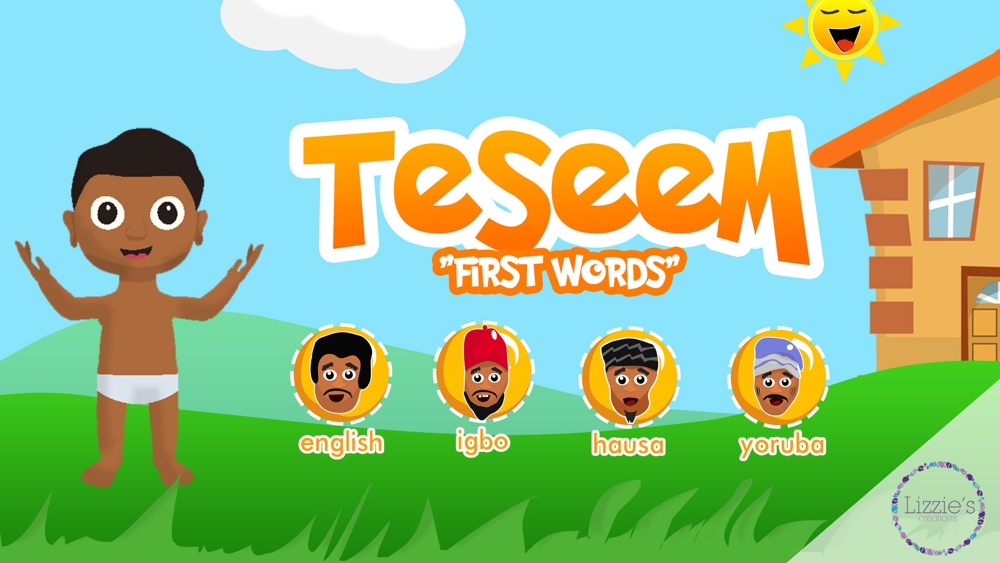 Elizabeth Eremie is the brains behind this brilliant idea and the Founder, Lizzie’s Creations with her husband and Co-Founder, Idamiebi Ilamina-Eremie. Elizabeth has always been passionate about educating women and children. Social equality and the African culture are issues she holds dear.
Elizabeth Eremie is the brains behind this brilliant idea and the Founder, Lizzie’s Creations with her husband and Co-Founder, Idamiebi Ilamina-Eremie. Elizabeth has always been passionate about educating women and children. Social equality and the African culture are issues she holds dear.
Elizabeth believes that if children grow up knowing how to speak their own mother tongue, they’ll have a deeper appreciation of their heritage, its rich history and showcase its vibrant cultures and diversity.
Eki Ogunbor of BellaNaija.com connected with the brains behind this idea and here’s what she had to tell us.
***
BellaNaija: What inspired you to get into the app development arena?
Elizabeth Eremie: I got into the app development arena because the world has gone mobile and that’s where all the action is today. If you want to be seen, you have to go online and mobile applications are the most readily accessible products online. So, in a bid to teach the younger generation about culture you have to get onto the platform where their eyes are. Kids these days hardly read books, they find all the information they need online.
BN: Tell us about your latest project Teseem.
EE: Teseem is a first words app for toddlers. It teaches toddlers first words in English and other indigenous Nigerian/African languages. It goes beyond wanting your kids to learn your native language, in today’s society where most homes are cross-cultural, you can have your child learn an entirely different African language from yours.
It could be for fun, it could be because you want to place that child on the pathway to being a polyglot (someone who speaks many different languages) in adulthood; whatever the reason, we feel Teseem is a good place to start because it’s easier for children to soak up lots of languages right off the bat.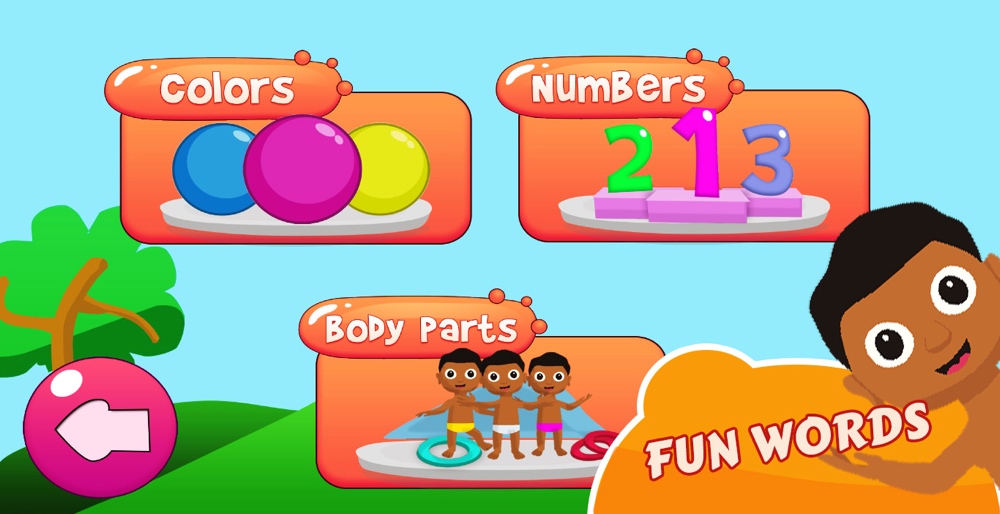 BN: Why is this project so important to you?
BN: Why is this project so important to you?
EE: I have a 9-month old daughter. I am from Benue state and my husband (also my co-founder) is from Rivers. And one day it hit me, she’ll start talking soon, what indigenous language do I teach her? There’s a phrase “mother tongue” and to take that literally, she could learn to speak mine but is that fair to her father and his culture?
After all, technically her state of origin is Rivers. So I mulled on this a bit and started asking a few of my friends and colleagues who also have partners who speak a different language. And I discovered this is actually a legitimate concern a lot of mothers have. So I decided to create something that will remedy this situation to an extent.
BN: What challenges did you face in the course of development of Teseem?
EE: During the course of development, right off the bat was which languages merit representation? Why should we do Hausa and not Bini? Can we actually put all indigenous African languages on our platform? Of course, this is an ongoing concern but we have to start somewhere so we started with the 3 “major” ethnic groups in Nigeria (charity begins at home obviously) and after those, we worked on Swahili and that has been added to the app as well. We are working on a few other languages at the moment.
Another challenge is giving people quality content while keeping app size reasonable. When we first launched, despite extensive optimization, we still had a 50MB app size and people were complaining! “My data o” “My device doesn’t have enough space” “You people should reduce the size.” And on the other end of the spectrum there were other people who left 3 star reviews saying the app is “a little lean in content. Please add more”. So the quagmire now is how do we add more content but keep the app size reasonable? We’ll figure something out.
BN: What mistakes have you learnt from this project?
EE: I can’t think of any really. We haven’t made any huge mistakes. I’m an impulsive decision maker but my co-founder is a very grounded and practical person. So when I get flights of fancy, he tells me why it doesn’t make sense or why it’s not practical to do this at this time. He balances me out and it’s a good balance. So we have avoided major mistakes thus far.
BN: How profitable is the business?
EE: Lizzie’s Creations is a potential multi-million dollar business because we are a very passionate team who are really good at what we are doing. We raised a substantial amount in funding recently but before that, we had bootstrapped to produce our first product, and we gave it out free to see if we had an original idea that we can run with. That’s passion. That means even without funding, we will still find a way to keep pushing. That is commitment.
With funding though, growth happens faster but if you throw all the money in the world at somebody who doesn’t have an original idea or is not passionate about what they are doing, there’s the very good possibility that money will trickle away without any appreciable results. So the fusion of an original idea, passion, commitment and adequate funding will definitely equal major profits. One has to spend money to make money after all.
BN: Who is your competition?
EE: We don’t have any direct competition in the space we are playing in. we have the advantage of being early movers.
BN: Do you think you and other like you stand a chance amongst your contemporaries around the world?
EE: Nigerian and African app developers are as brilliant as our contemporaries’ abroad if not more because the economic climate and government policies in Nigeria and Africa directly or indirectly stifle small and medium scale businesses. And because Africa is still not as technologically advanced as the rest of the world, we face challenges in product development, fund raising, marketing, product adoption and a host of other areas. But we are persevering despite all of these hurdles.
BN: How do you intend to break in to the market?
EE: Well, the same way any brand breaks into its market really. Marketing, advertising and partnerships. Our target market is upper middle class Africans and Africans living abroad who would like their children to maintain ties with their indigenous culture. We’ve also discovered it’s not just children really, we’ve come across a few adults who never learnt how to speak their language who tell us they are interested in at least learning a few words and phrases so that they can communicate with relatives and loved ones.
BN: What variables affect app development dispersal?
EE: In Nigeria, obviously its payment. We like free stuff. It’s quite difficult getting Nigerians to buy in-app purchases or to out rightly buy an app especially an educational app. they are a bit more willing for games and recreational apps. But I’ve also noticed that it’s easier to market products for children to mothers; they are more willing to spend money on educational content for their children than fathers are.
BN: What future developments can we look forward to from the Teseem app?
EE: Going forward we’ll keep adding more indigenous African languages to the app and expanding the word base. Soon though, we’ll have to break up the app when we get to a certain size and have a number of apps in smaller sizes so that one will just download the one they are interested in at any particular time.
BN: What are your projections for Teseem?
EE: We see Teseem going global because we just don’t want it to be an app for Africans we want it to be an app about Africa that even non-Africans can use. We want to put Africa on the map as a place that has a vibrant culture, a rich history and unity in diversity. We want the upcoming generation to know about Africa and be proud of it and tell their peers that there’s more to Africa than hunger and disease.
BN: How do you think app development and developers in Nigeria can get better?
EE: Government support. I can’t over stress this because the economic climate of a country is what makes or breaks businesses. We are actually facing a policy challenge right now; people who have Nigerian bank cards can’t make in-app purchases or buy anything on any of the app stores. This is stifling us because this is revenue that should be going to paying people who work for us and back into the economy as tax.
If we can’t make enough money, we can’t provide enough jobs, it’s that simple. So in a lot of direct or indirect ways, some government policies do not favor small businesses at all. So it’s quite common to see some of the really good developers looking for how they can export their skills to other climes that are more favorable and receptive.
BN: What’s your opinion of the involvement of women in tech?
EE: I don’t think twice about it because I do not subscribe to the notion of gender disparity. I try not to lump people into categories based on gender or any other criteria. If person A can do it, person B can also do it. We all have a natural aptitude for certain things, and if you are good at it and enjoy it, why shouldn’t you do it?
I see nothing wrong with a woman choosing to be a mechanic, or a plumber or to go work on an offshore oil rig? What disqualifies her? She’s got the same brain, the same eyes, hands and legs. The parts of her anatomy that differentiate her from a man have no bearing whatsoever on her ability to do the job. So I don’t see why people discriminate.
BN: Away from business, how does your professional life impact your personal life?
EE: I am lucky my husband is also my co-founder so the way I see it, it greatly simplifies things for us. Because someone is always working on the business even in our downtime. We take turns playing with our daughter if the other person has work to do. But we still ensure we take time out as a family because it is important to us that she doesn’t grow up in a home where both parents are always off chasing paper. Being an entrepreneur means having flexible hours but it also means there are no weekends and no nights. So we have to actively make an effort to switch off sometimes.
***
Thanks so much for talking to us Elizabeth!
You can download the Teseem – First Words app on Google Play and is coming soon to IOS.

